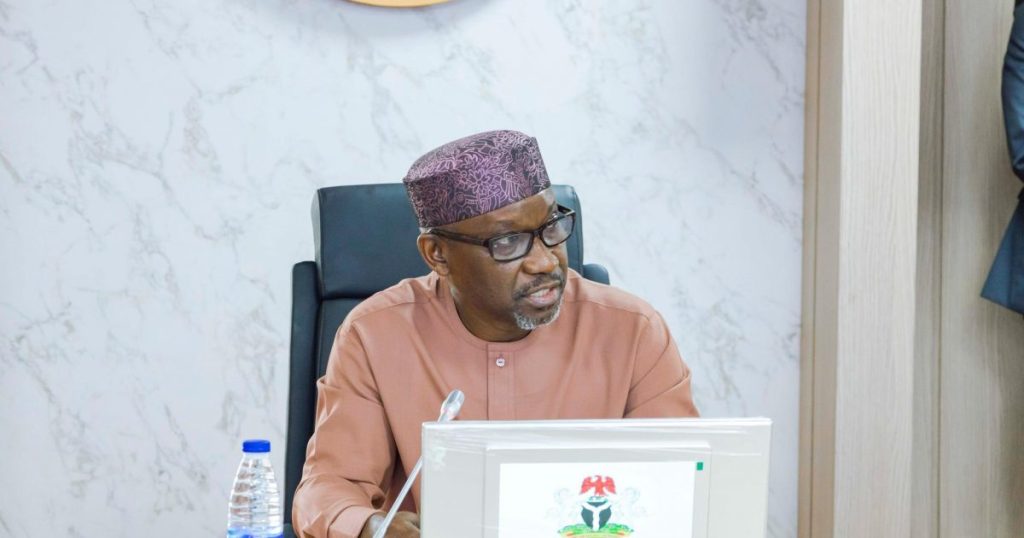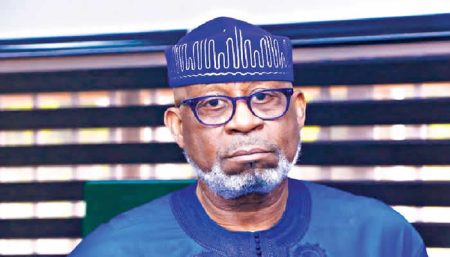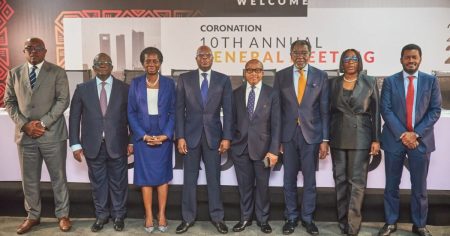Nigeria’s gas production ambition took center stage at a high-level engagement between the Minister of State Petroleum Resources (Gas), Ekperikpe Ekpo, and major gas-producing companies operating in the country. Ekpo underscored the urgency of ramping up gas production by one billion standard cubic feet (BCF) annually between 2025 and 2030. This aggressive target is crucial to achieving the nation’s overarching goal of producing 12 BCF of gas per day by 2030, a significant leap from the current capacity of 7.3 BCF. This increase is not merely about boosting production figures; it is intrinsically linked to eradicating routine gas flaring, a wasteful practice with detrimental environmental consequences. The meeting, held at NNPC Towers in Abuja, served as a platform to articulate the government’s vision for the gas sector and to galvanize stakeholders towards collaborative action.
The Minister highlighted the strategic importance of recent divestments by major oil companies, presenting these as a unique opportunity for Nigeria. These divestments, rather than being viewed as a setback, are being framed as a catalyst for accelerated growth. They pave the way for increased exploitation and production of both Associated Gas (AG), which is found alongside oil deposits, and Non-Associated Gas (NAG), which exists independently. Capitalizing on this window of opportunity, Ekpo emphasized the need for a strategic approach encompassing accelerated project timelines, modernization of existing infrastructure, and the adoption of innovative extraction and processing technologies. This forward-looking strategy aims to unlock the full potential of Nigeria’s vast gas reserves and position the nation as a dominant player in the global gas market.
International collaboration emerged as another key theme of the meeting. The Minister stressed the importance of forging strong partnerships with international stakeholders and technical experts to ensure the successful execution of crucial gas infrastructure projects, specifically referencing the Ajaokuta-Kaduna-Kano (AKK) and the Obiafu-Obrikom-Oben (OB-3) gas pipelines. These pipelines are pivotal to connecting gas resources to domestic and industrial markets, thereby fueling economic growth and supporting Nigeria’s ambition to become a regional gas hub. The completion of these projects will not only enhance domestic gas supply but also strengthen Nigeria’s position as a key energy player within the region, facilitating export opportunities and fostering regional energy security.
Beyond simply increasing production, the Minister emphasized the environmental and economic benefits of ending gas flaring. Commending the NNPC/TotalEnergies joint venture for achieving zero routine flaring in its operations, he urged other operators to follow suit. Eliminating gas flaring aligns with global efforts to reduce carbon emissions and mitigate the effects of climate change. Moreover, capturing and utilizing flared gas translates to economic gains by converting a wasted resource into valuable energy and revenue streams. This dual focus on environmental sustainability and economic prosperity underscores the government’s commitment to responsible resource management.
To overcome the financial and technical hurdles inherent in such ambitious projects, the Minister advocated for accelerated timelines, increased resource allocation, and the exploration of public-private partnerships (PPPs). These PPPs are envisioned as a mechanism to leverage private sector expertise and capital, complementing government resources and accelerating project implementation. By fostering collaboration between the public and private sectors, Nigeria aims to create a synergistic approach to gas development that maximizes efficiency and shared benefits. This collaborative model is seen as essential for overcoming the challenges of funding and technical expertise, ultimately driving the successful completion of these critical infrastructure projects.
Representatives from various stakeholders echoed the Minister’s sentiments and pledged their commitment to achieving the national gas targets. Gbenga Komolafe, Chief Executive of the Nigerian Upstream Petroleum Regulatory Commission (NUPRC), reassured investors of a conducive regulatory environment, highlighting identified dedicated gas assets slated for inclusion in upcoming bid rounds. Hadiza Usman, the Special Adviser to the President on Policy and Coordination, conveyed President Bola Tinubu’s keen interest in the gas sector’s potential for national development. Olalekan Ogunleye, Executive Vice President, Gas, Power, and New Energy at the Nigerian National Petroleum Company Limited (NNPC), affirmed collaborative efforts across the gas value chain to meet the 2030 target and provided updates on the AKK and OB-3 pipeline projects, reporting significant progress towards completion. The collective commitment demonstrated at the meeting signifies a unified front in pursuit of Nigeria’s gas aspirations.














